Data integrity focuses on ensuring a company’s stored data is accurate, consistent, and can reliably meet the needs of the business. Client information, customer data, product details, and any data employees use to get their work done involves data integrity, and businesses want to make sure their information is as safe as possible. Losing data to mishandling, corruption, or user error can set projects back significantly or put important client information in jeopardy. To best keep data secure, SMBs should catalogue the forms of data they need to maintain, follow best practices to overcome challenges to maintaining their data, and actively work to validate data integrity over time.
Physical and Logical Integrity

Generally, data integrity focuses on physical and logical integrity. Physical integrity revolves around the devices and storage methods a business uses to maintain data. For example, a company could store information on physical hard drives that are kept on premises or store their data with a cloud service. Logical integrity involves ways of ensuring data is accurate and usable, no matter where it is stored. Businesses want to ensure data is not unnecessarily repeated or left blank in databases and that there are rules for how data can be stored, changed, and referenced. Physical and logical integrity are tied closely together, and a failure in one can often be related to problems with the other.
Challenges to Data Integrity

Data integrity can be disrupted by a variety of factors from user error to damaged hardware. If employees are not diligent with their data entry, then they can duplicate elements or omit critical information. Data can become incomplete or deleted if old hardware used to store it is not upgraded regularly or gets damaged on premises. Additionally, malicious actors will frequently target a businesses data bases to steal information or disrupt operations during a cyberattack. The initial attack can cause immediate problems, and lingering malware from the attack can further compromise the company’s data after the incident appears to be resolved.
Data Best Practices

To help ensure the business’ data remains accurate and consistent, SMBs can follow industry best practices and work with an IT consultant to create policies and implement the right services for their situation. Company data should have regular recurring backups that can reliably be used if company data is lost or compromised. It is also recommended to implement the principle of least privilege for important data and ensure the correct access controls are placed on applications and databases used to store and handle data. If a business needs assistance with implementing cybersecurity policies or reliable security solutions, then an IT consultant can help find flexible services that can meet the businesses needs.
Summary
Data integrity is a critical piece of an SMB’s cybersecurity posture, and not having the right policies and tools in place could lead to data loss or compromised client information. To better ensure the physical and logical integrity of the business’ data, companies should have reliable backups, keep up to date with storage methods, and limit access to only the employees that require sensitive data to get work done. For SMBs facing data integrity challenges, an IT consultant can be a reliable source for guidance on how to better secure your data and train employees on how to help keep company information safe!




